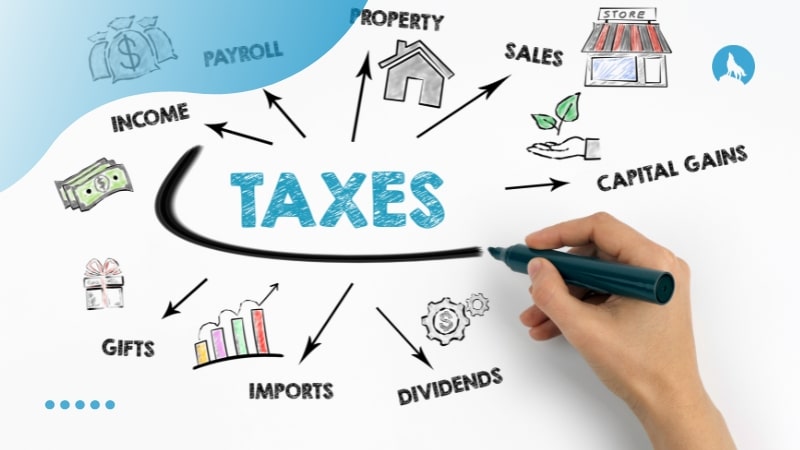Effective tax saving strategies are crucial for anyone looking to optimize their finances. By understanding and implementing these strategies, you can significantly reduce your tax burden, allowing you to retain more of your hard-earned income. Whether you’re an individual taxpayer or a business owner, having a clear plan in place can make a big difference in your financial health.
Moreover, effective tax saving strategies not only help in minimizing taxes but also in building wealth over time. Properly navigating tax deductions, credits, and investment opportunities can lead to substantial savings. It’s not just about paying less to the government; it’s about using your financial resources more efficiently and strategically.
In addition, effective tax saving strategies require regular review and adjustment. Tax laws change frequently, and what works one year might not be the best approach the next. Staying informed and proactive ensures that you’re always maximizing your savings potential and staying compliant with current regulations.
Understanding the Basics of Tax Saving (Effective tax saving strategies)

To implement effective tax saving strategies, it’s essential first to understand the basics of how taxes work. Knowing the difference between deductions, credits, and exemptions can help you identify the opportunities available to reduce your taxable income.
1. Tax Deductions vs. Tax Credits
Tax deductions reduce your taxable income, thereby lowering the amount of tax you owe. On the other hand, tax credits directly reduce your tax liability, meaning they can lower the amount of tax you owe dollar for dollar. Understanding the difference between these two can help you maximize your tax savings.
2. Common Tax Deductions
There are numerous deductions available that can reduce your taxable income, such as mortgage interest, charitable contributions, and medical expenses. Taking full advantage of these deductions is a cornerstone of effective tax saving strategies.
Maximizing Retirement Contributions
One of the most effective ways to save on taxes is by maximizing your retirement contributions. Contributions to accounts like 401(k)s and IRAs often come with tax benefits that can lower your current tax burden while also helping you save for the future.
1. 401(k) and IRA Contributions (Effective tax saving strategies)
Contributing to a 401(k) or IRA not only helps you prepare for retirement but also offers immediate tax savings. Contributions to traditional retirement accounts are typically tax-deductible, reducing your taxable income for the year.
2. Roth IRA Contributions
While Roth IRA contributions are made with after-tax dollars, the benefit comes in retirement when withdrawals are tax-free. This strategy can be particularly effective for those who expect to be in a higher tax bracket in the future.
Utilizing Health Savings Accounts (HSAs)
Health Savings Accounts (HSAs) offer a triple tax advantage: contributions are tax-deductible, the money grows tax-free, and withdrawals for qualified medical expenses are also tax-free. This makes HSAs a powerful tool in your arsenal of effective tax saving strategies.
1. Eligibility and Contributions (Effective tax saving strategies)
To contribute to an HSA, you must be enrolled in a high-deductible health plan (HDHP). The contribution limits are set annually by the IRS, and maximizing these contributions can lead to significant tax savings.
2. Tax-Free Withdrawals for Medical Expenses
Using HSA funds for qualified medical expenses allows you to avoid paying taxes on the money altogether. This not only helps with immediate medical costs but also serves as a long-term tax-saving strategy.
Taking Advantage of Business Tax Deductions
For business owners, there are numerous tax deductions available that can significantly reduce taxable income. Understanding and leveraging these deductions is key to maintaining profitability while minimizing tax liabilities.
1. Home Office Deduction
If you use part of your home exclusively for business, you may qualify for the home office deduction. This allows you to deduct a portion of your home expenses, such as mortgage interest, utilities, and insurance.
2. Business Expenses (Effective tax saving strategies)
Ordinary and necessary business expenses, including travel, equipment, and supplies, are often tax-deductible. Keeping detailed records of these expenses ensures that you can take full advantage of the deductions available.
Planning for Capital Gains and Losses
Capital gains taxes apply to the profit you make from selling investments like stocks or real estate. Effective tax saving strategies involve managing these gains and losses to minimize your tax burden.
1. Harvesting Capital Losses (Effective tax saving strategies)
If you have investments that have lost value, selling them to realize a capital loss can offset any capital gains you’ve realized, reducing your overall tax liability. This strategy is particularly useful in volatile markets.
2. Timing Your Sales
Timing the sale of investments can also impact your tax liability. Holding onto assets for more than a year qualifies you for the lower long-term capital gains tax rate, which can be a significant savings compared to short-term rates.
Reviewing and Adjusting Your Tax Strategy Annually
Tax planning is not a one-time event; it requires regular review and adjustment. As your financial situation changes and tax laws evolve, so too should your approach to saving on taxes.
1. Staying Informed About Tax Law Changes
Tax laws can change from year to year, affecting the effectiveness of your tax saving strategies. Staying informed and consulting with a tax professional can help you stay ahead of these changes and continue maximizing your savings.
2. Regularly Updating Your Financial Plan (Effective tax saving strategies)
As your income, expenses, and financial goals change, it’s important to regularly update your financial plan to ensure it aligns with your tax-saving objectives. This proactive approach helps you stay on track and avoid surprises come tax season.
Exploring Additional Financial Resources
For those looking to expand their knowledge on tax saving strategies and other financial topics, it’s helpful to explore various online resources. Websites like FinanceBuzz offer valuable insights and tips on managing your finances, including how to optimize your tax savings and make informed financial decisions.
Tax Planning for Different Life Stages (Effective tax saving strategies)
Tax saving strategies can vary depending on your stage in life. Whether you’re just starting your career, raising a family, or preparing for retirement, tailored approaches can help you maximize savings at every phase.
Early Career Tax Strategies
When you’re early in your career, your income might be lower, making it an ideal time to focus on tax-advantaged savings accounts like Roth IRAs. Additionally, taking advantage of student loan interest deductions can help reduce your tax burden.
Balancing Tax Saving with College Fund Planning
When planning your finances, it’s essential to balance tax saving strategies with other long-term goals, such as building a college fund for your children. While reducing your tax burden is crucial, ensuring that you are also setting aside enough for future education expenses is equally important. Understanding how to save for college fund can help you align your tax-saving efforts with your educational savings goals, allowing you to create a comprehensive financial plan that addresses both priorities effectively.
Conclusion (Effective tax saving strategies)
Implementing effective tax saving strategies is essential for optimizing your financial situation. By understanding the basics of taxes, maximizing deductions and credits, and regularly reviewing your strategy, you can significantly reduce your tax burden. Whether you’re saving for retirement, managing investments, or running a business, being proactive and informed will help you keep more of your money working for you.



